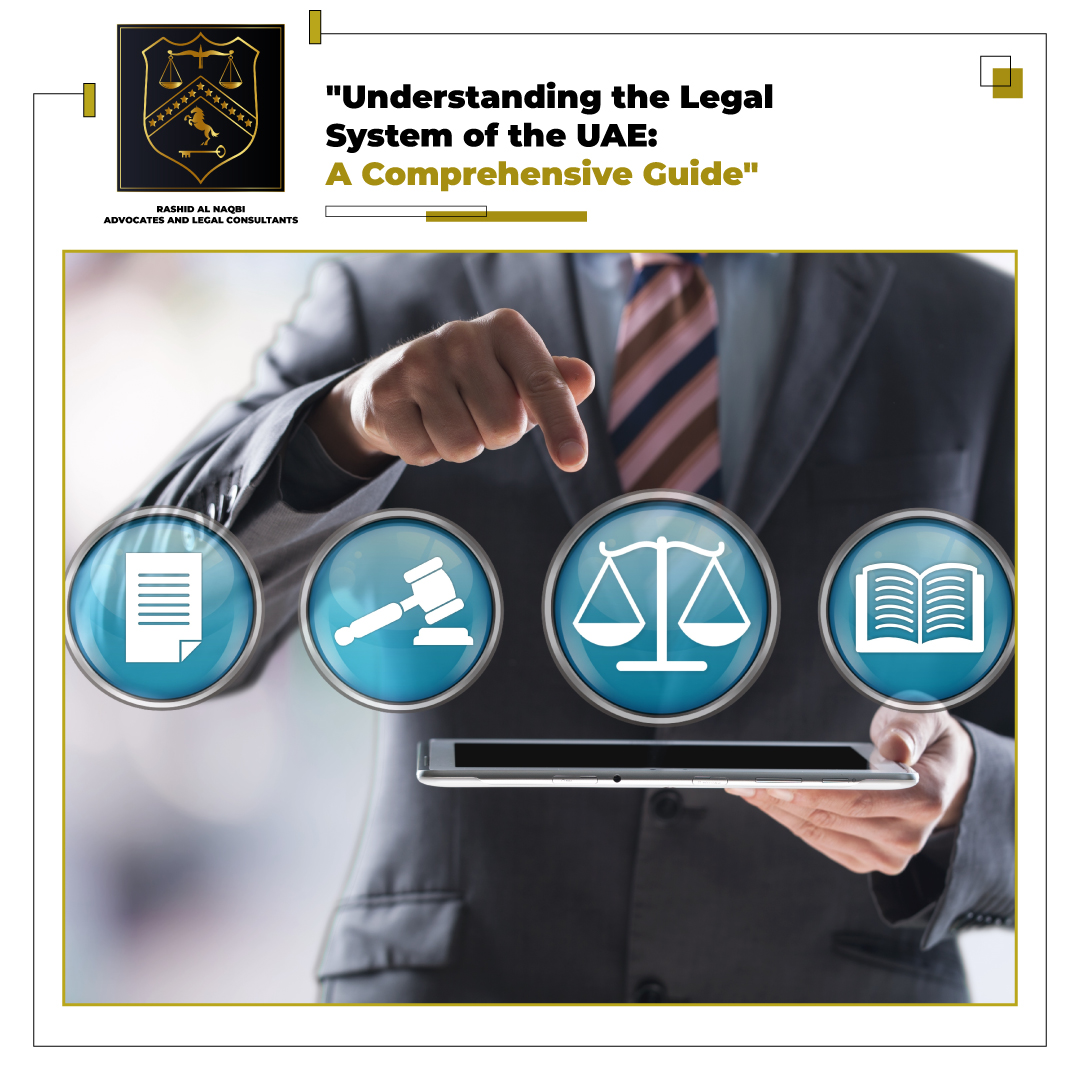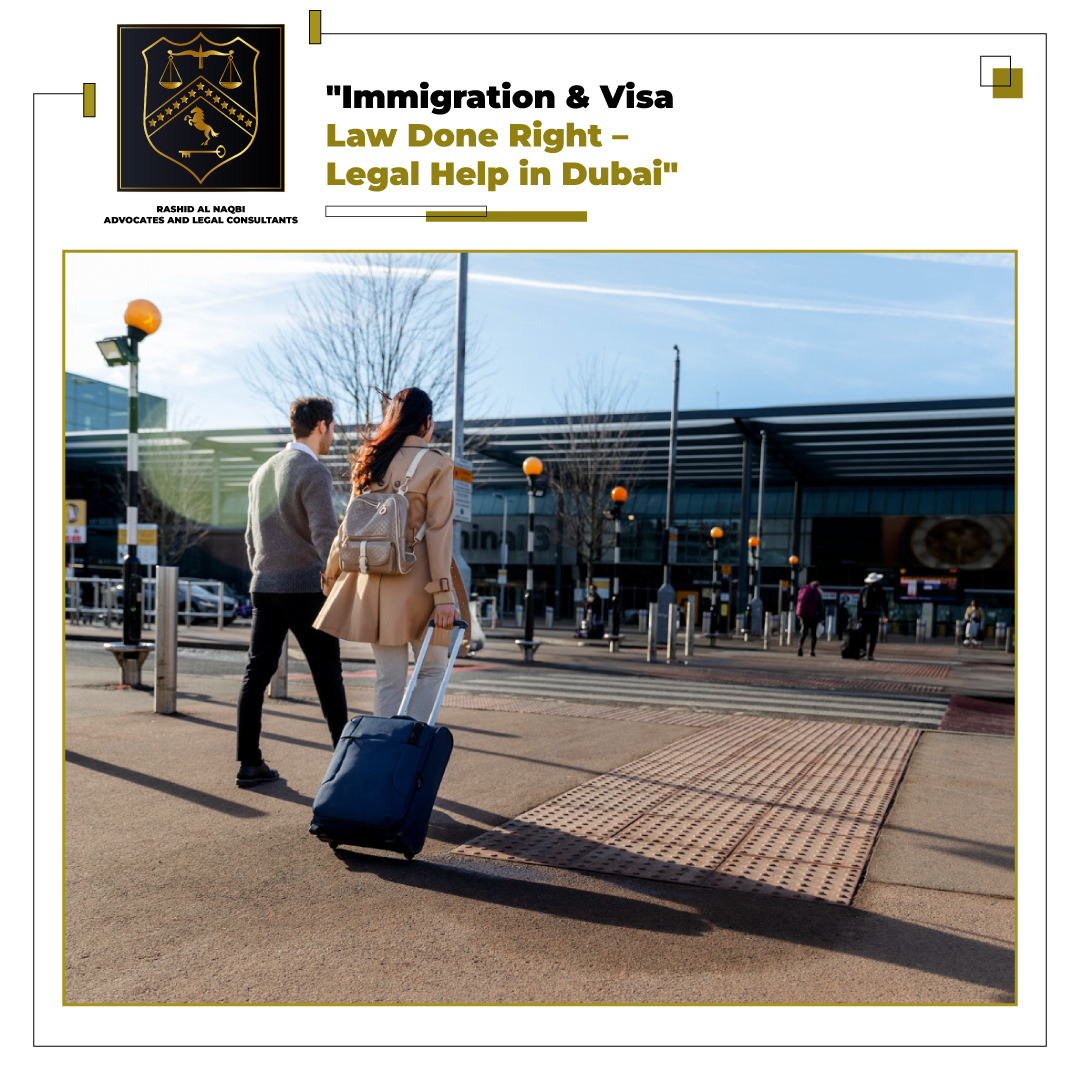

06-11-2024 | 10:38 am |
The United Arab Emirates (UAE) is a modern, dynamic country that blends traditional values with progressive governance. One of the key aspects that make the UAE stand out on the global stage is its unique legal system, which combines elements of Islamic law (Sharia), civil law, and common law principles. Understanding the legal system of the UAE is essential for anyone living, working, or doing business in the country, whether you are a local resident or an expatriate.
In this guide, we will break down the structure of the UAE's legal system, its key features, and how it functions in practice, offering insights into its judicial processes and the key institutions that govern it. For those seeking further legal assistance, firms like Al Naqbi Advocates can offer expert legal services to navigate this intricate system.
The Foundation of the UAE Legal System
The legal system of the UAE is a hybrid system that incorporates Sharia law, civil law, and aspects of common law, creating a distinctive framework that governs the country. The UAE’s constitution, established in 1971, provides the foundation for the country’s legal structure, setting out the roles of the federal government and the individual emirates. The UAE is a federation of seven emirates, each with its own local laws and judicial system, but there is a unified legal system at the federal level.
It is based on Islamic principles and applies to both UAE nationals and non-Muslim expatriates in certain circumstances. However, the extent of Sharia law’s influence varies, with some emirates applying it more strictly than others. Civil law principles, derived largely from the French and Egyptian legal systems, govern commercial transactions, business practices, and criminal law. The influence of common law is seen more in the business and financial sectors, especially in Dubai, which has adopted several international business practices to attract foreign investment.
Key Institutions and Judicial Structure
The UAE has a dual judicial system: federal and local (or emirate-specific) courts. The Federal Court System handles matters related to federal laws, while local courts deal with issues that pertain to the specific emirate’s laws, including those involving civil and commercial disputes.
Federal Courts: At the federal level, the judiciary is comprised of several layers:
The Federal Supreme Court is the highest judicial authority in the UAE and has the final say on matters relating to the interpretation of federal law. It is also responsible for resolving disputes between the various emirates and ensuring consistency in the application of federal law.
Federal Courts of Appeal and Federal Courts of First Instance are responsible for handling appeals and initial legal matters related to federal law.
Local Courts: Each emirate, such as Dubai, Abu Dhabi, or Sharjah, has its own court system, which handles matters that fall under local jurisdiction. Local courts apply both Sharia and civil law principles based on the laws of the emirate in question. For instance, Dubai has a more liberal and international approach, especially in business matters, with its own courts handling commercial disputes and a special Dubai International Financial Centre (DIFC) Court for financial and business-related cases.
Key Features of the Legal System
Sharia Law’s Influence: Sharia law governs personal matters such as marriage, divorce, child custody, and inheritance for UAE nationals and Muslim expatriates. Non-Muslim expatriates can opt to have their personal matters governed by their home country’s laws, though this is subject to approval by the courts.
Criminal Law: The UAE’s criminal law system follows civil law principles, but some criminal offenses, particularly those related to alcohol consumption, drugs, and certain moral offenses, are subject to Sharia principles. Severe punishments such as fines, imprisonment, or deportation can result from violating these laws.
Commercial Law: The UAE offers a highly developed and favorable environment for business, with a legal system that is conducive to foreign investments and international trade. Laws governing contracts, corporate structures, intellectual property, and employment are aligned with international standards. The DIFC courts in Dubai, established to handle international disputes, follow English common law, making it easier for foreign companies to operate.
Dispute Resolution: Dubai, in particular, has developed a reputation as a global arbitration hub with its Dubai International Arbitration Centre (DIAC), which provides efficient and reliable dispute resolution services.
How the Legal System Affects Expats and Businesses
For expatriates, understanding the legal system of the UAE is crucial in order to navigate daily life and avoid legal pitfalls. The country’s legal framework upholds strong protections for both local and foreign residents. However, expatriates should be aware of specific legal nuances, especially when it comes to personal status law (family matters), commercial contracts, and workplace rights.
For businesses, the UAE offers a relatively straightforward process for setting up companies, registering intellectual property, and engaging in cross-border trade. However, understanding the legal obligations and the role of contracts is essential. Many businesses opt to work with legal experts, such as Al Naqbi Advocates, to ensure they comply with local laws and international regulations.
Conclusion
The legal system of the UAE is a unique blend of Islamic law, civil law, and common law, reflecting the country’s modern approach to governance while respecting its rich cultural heritage. Whether you’re living in the UAE as an expatriate, planning to invest, or running a business, understanding the legal framework is key to making informed decisions. For those seeking legal guidance or facing legal challenges, firms like Al Naqbi Advocates can provide valuable assistance in navigating the complexities of the UAE’s legal system.
By understanding the structure of the UAE legal system, individuals and businesses can protect their interests and ensure that they are compliant with the country’s laws.
To avail of the consultation of the lawyers of Al Naqbi Advocates, you may contact us
Tags : Best Property Lawyers in Dubai || Rental Dispute Lawyer Dubai || Top Lawyers and Advocates of Dubai || Dubai Family Lawyers || Law Consultants in Dubai || International Law Firm in Dubai || Best Advocates in Dubai || Trusted Advocates in Dubai || Law Firms in Dubai UAE || Advocates and Legal Consultants in Dubai || Corporate Lawyer in Dubai || Best Criminal Lawyers in Dubai || How to Find the Best Lawyers in Dubai || How to Find a Good Lawyer in Dubai || How to Choose the Right Lawyer in the UAE ||
 World Class Corporate Lawyers in Dubai
World Class Corporate Lawyers in Dubai Dubai Legal Services
Dubai Legal Services Leading Dubai Lawyers
Leading Dubai Lawyers Advocates in Dubai Who Get Results Fast
Advocates in Dubai Who Get Results Fast Reliable Advocates in Dubai
Reliable Advocates in Dubai Corporate Law in Dubai
Corporate Law in Dubai Legal Help in Dubai
Legal Help in Dubai Dubai Lawyers for International Clients
Dubai Lawyers for International Clients Top Defense Lawyers in Dubai
Top Defense Lawyers in Dubai Best Defense Lawyers in Dubai
Best Defense Lawyers in Dubai